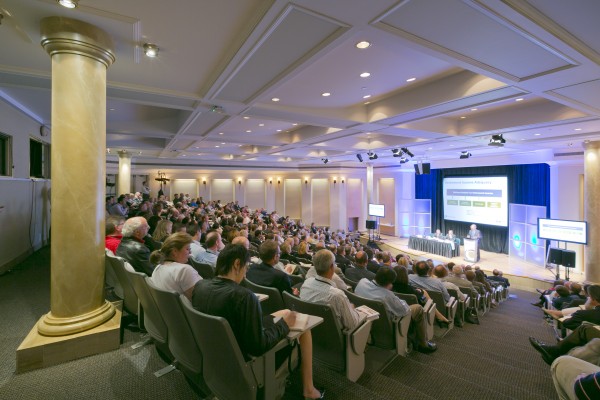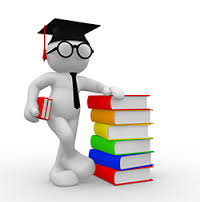
Plagiarism is a serious issue and has become more prevalent even at the graduate level. It is true – many students do not understand the multiple facets of plagiarism, and most are not intentionally copying the works of others. Access to internet sources has made it easy and convenient to copy and paste passages (short and long) from websites, peer-reviewed journals, and e-books. Many have employed this as a form of note-taking as they comb through their research. The problem is that as they copy/paste and write their own words, the two get intertwined. The student author may not remember what was copied, what has already been paraphrased, and what constitutes their own original thoughts.
 It is important to educate our students on how to identify plagiarism, how to avoid it, and how to cite correctly. In fact, our librarians at California State University Fresno’s Henry Madden Library, offer workshops on “Avoiding Plagiarism” and our Grammar for Grad Students Series has also included a session on plagiarism.
It is important to educate our students on how to identify plagiarism, how to avoid it, and how to cite correctly. In fact, our librarians at California State University Fresno’s Henry Madden Library, offer workshops on “Avoiding Plagiarism” and our Grammar for Grad Students Series has also included a session on plagiarism.
While it is crucial for students to know how to avoid plagiarism, we also must equip them with strategies of how to incorporate information from sources into their own writing. They need to master the art of paraphrasing. We have seen many students who come into the Writing Studio poorly equipped with paraphrasing skills. They look at a paragraph and try to rearrange words or replace words in the hopes of making it their own. When this occurs, it is apparent that the student is engaging with words and not the overall topic itself. As they research literature related to a specific topic, they need to be gaining understanding of that topic based on what the experts in the literature are saying. They need to be able to understand the ideas embodied in the research and know how to cite appropriately. This requires much more than substituting a word here and there or re-ordering a sentence. If a student has taken the time to research and understand the topic, they will be able to communicate the issues embodied in the topic in their own words.
the ideas embodied in the research and know how to cite appropriately. This requires much more than substituting a word here and there or re-ordering a sentence. If a student has taken the time to research and understand the topic, they will be able to communicate the issues embodied in the topic in their own words.
The progression of moving from reading and researching to creating the draft is crucial, and it is one reason we encourage students to come in and meet with a writing consultant early in the writing process. It is during the stages of brainstorming, research, outlining, and drafting where students are forced to articulate the information as they talk to the consultant. This gives them the opportunity to verbalize research themes and ideas and leads to a better understanding of the topic. In addition, it is at this time that paraphrasing skills can be developed with the guidance of a writing consultant.
I think that students need to be made aware of plagiarism. Consequences need to be in place when plagiarism occurs. I also think we need to continue to support students in their own writing processes, so they can confidently convey the research found in the literature while giving credit where credit is due.

Here are some helpful sites that provide more information, strategies, and exercises for paraphrasing and avoiding plagiarism:
http://writingcenter.unc.edu/handouts/plagiarism/: this is a great article from UNC. It outlines common knowledge, paraphrasing, avoiding plagiarism, and strategies for taking organized notes.
Several universities have created Plagiarism Tutorials:
The University of Southern Mississippi http://www.lib.usm.edu/legacy/plag/plagiarismtutorial.php
Duke University: https://plagiarism.duke.edu/
Penn State: http://tlt.psu.edu/plagiarism/student-tutorial/
Simon Fraser University: http://www.lib.sfu.ca/help/academic-integrity/plagiarism-tutorial
The plagiarism-checking platform (Turnitin) also has some resources: http://turnitin.com/en_us/resources
By Debra Neufeld

 searching their biological instincts to find a way to survive the experience. They also trust that, if they fail, they will be saved. Throw the student in, but be there to save them from drowning. Grammar, logical continuity, syntax, research, outlining, the drafting process, and other processes have been a part of every graduate student’s life at some point—this is their pool of water. They may not have the vocabulary to explain these things and they may not know how to explain the functions of language on the page—they may not know that they already know how to swim—but they have been exposed enough to paddle their way to safety.
searching their biological instincts to find a way to survive the experience. They also trust that, if they fail, they will be saved. Throw the student in, but be there to save them from drowning. Grammar, logical continuity, syntax, research, outlining, the drafting process, and other processes have been a part of every graduate student’s life at some point—this is their pool of water. They may not have the vocabulary to explain these things and they may not know how to explain the functions of language on the page—they may not know that they already know how to swim—but they have been exposed enough to paddle their way to safety. Students often get caught up in sounding scholarly. When encountering this, try to ask them, “How would you write this sentence?” Often, after they have let go of that Jiminy Cricket on their shoulder who is telling them that they need to write to a scholarly audience, they dismantle the facade and rewrite the sentence in their own authoritative voice. These students haven’t quite learned that they have already become the scholars and they definitely do not trust themselves. How do we show them how to trust themselves? We ask them to explain the subject in their own words. We should listen, ask, and then listen again. They have the tools and a constructivist approach would assume that they would find their way. A consultant should say “there is the pool,” throw them, in and be the “life jacket” in case the student flounders. Nine times out of 10, the student will find their way toward a clear, scholarly, voice that belongs to them.
Students often get caught up in sounding scholarly. When encountering this, try to ask them, “How would you write this sentence?” Often, after they have let go of that Jiminy Cricket on their shoulder who is telling them that they need to write to a scholarly audience, they dismantle the facade and rewrite the sentence in their own authoritative voice. These students haven’t quite learned that they have already become the scholars and they definitely do not trust themselves. How do we show them how to trust themselves? We ask them to explain the subject in their own words. We should listen, ask, and then listen again. They have the tools and a constructivist approach would assume that they would find their way. A consultant should say “there is the pool,” throw them, in and be the “life jacket” in case the student flounders. Nine times out of 10, the student will find their way toward a clear, scholarly, voice that belongs to them. Academic conferences in your field of study are valuable (and often initially intimidating) scholarly experiences. Since I am preparing to attend a conference next month, I’ve compiled a series of tips for applying to, getting to, and presenting at graduate and undergraduate conferences.
Academic conferences in your field of study are valuable (and often initially intimidating) scholarly experiences. Since I am preparing to attend a conference next month, I’ve compiled a series of tips for applying to, getting to, and presenting at graduate and undergraduate conferences.

 Conference Etiquette
Conference Etiquette This week I am going to feature two of our amazing writing consultants and their thoughts on the best use of time and managing life during the writing process. We are losing Katy as she is moving on to a job in her field of study and expertise, but Scott will be back to discuss his ideas further in a continuing series. First up, Katy Hogue:
This week I am going to feature two of our amazing writing consultants and their thoughts on the best use of time and managing life during the writing process. We are losing Katy as she is moving on to a job in her field of study and expertise, but Scott will be back to discuss his ideas further in a continuing series. First up, Katy Hogue: 
 By Scott Trippel, Graduate Writing Consultant
By Scott Trippel, Graduate Writing Consultant spending 3 hours in the middle of the night, try sleeping, wake up refreshed, and get your paper done in 1 hour. I found a lot of advice about sleep hygiene online, one of the best comes from the University of Michigan Health System. You can find it here.
spending 3 hours in the middle of the night, try sleeping, wake up refreshed, and get your paper done in 1 hour. I found a lot of advice about sleep hygiene online, one of the best comes from the University of Michigan Health System. You can find it here.
 A great deal of students we see at the Graduate Writing Studio are completing degrees in psychology, nursing, and physical therapy. While health-centric disciplines may not be popularly associated with writing, the GWS can offer guidance on literature reviews, case reports, evidence-based papers, and any other written projects. In a 2013 evaluation of its own writing center, the Medical University of South Carolina found “that nearly all students who used the Center agreed (and most strongly agreed) that it met their needs” and use of the Center was “associated with a better written product” (Ariail et al. 132).
A great deal of students we see at the Graduate Writing Studio are completing degrees in psychology, nursing, and physical therapy. While health-centric disciplines may not be popularly associated with writing, the GWS can offer guidance on literature reviews, case reports, evidence-based papers, and any other written projects. In a 2013 evaluation of its own writing center, the Medical University of South Carolina found “that nearly all students who used the Center agreed (and most strongly agreed) that it met their needs” and use of the Center was “associated with a better written product” (Ariail et al. 132).







